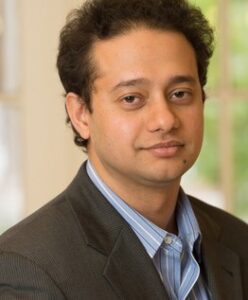SER Member Insight: Rupak Shivakoti
What sparked your decision to become an epidemiologist?
In college, I was a Biology major and conducted laboratory-based research in infectious diseases. However, having grown up in Nepal, I was always attracted to the idea of global public health, without fully understanding the diversity of career options available in public health. I was fortunate to take an epidemiology class and knew that was exactly my field. I then chose a graduate school where I could get advanced training in both lab-based microbiology/immunology as well as epidemiology, and have since focused on global epidemiology studies that often incorporates lab-based variables (e.g. microbiome, inflammation).
What do you see as the biggest obstacle facing epidemiologists in the next five years?
While the increasing collaboration between experts from different fields in recent times have been exciting, I think one major challenge will be how to manage these collaborations. For example, in my own research area, there is often collaboration between epidemiologists, clinicians, biostatisticians, lab scientists, and bioinformaticians. The epidemiologist is often at the center of these collaborations yet will have limited expertise in these other fields. The challenge will then be to balance learning new skills (e.g. specific skill sets within these other fields when possible) vs. deferring to the expert collaborator, all while trying to ensure relevant epidemiologic concerns (e.g. appropriate design, measurement, risk of bias) are addressed. While this is not a new challenge, I do think these challenges for epidemiologists will increase in the next 5 years with expansion of multi-omics/big data/AI.
Do you have any pets?
No pets.
Why did you join SER? What keeps you coming back?
I joined SER relatively late as a post-doctoral fellow. I was working with Dr. Rebecca Brotman on a manuscript and she suggested we present the data at SER. Since then I have been more involved, especially as part of the awards committee and abstract reviews. I think it is a great venue to be connected to other epidemiologist, and to keep learning about the latest in the field for both the methods and specific topics of interest to me.
What advice do you give students who want to become epidemiologists?
If you are interested in health, this is a great field for your education and future career. As part of public health, epidemiology has both a ‘basic’ aspect focused on methods as well as an applied aspect focused on health applications. Whatever your passion related to public health is, it is likely that there is a home for you in epidemiology.
Outside of epidemiology what do you enjoy doing?
Catching up on sleep, relaxing and watching soccer games on TV (I am a FC Barcelona fan) are simple things I think I still enjoy but do not get to do with young kids in the house. So instead, we just go to parks and enjoy nature while the kids run around.
What is something that not many people know about you?
I lived in Thailand for 5 years during my high school years, yet I don’t speak any Thai. My excuse was I was learning Spanish (I also don’t speak Spanish despite taking it for 5 years).

